
Find Help
More Items From Ergsy search
-

What materials are mosquito screens made from?
Relevance: 100%
-

Are there eco-friendly mosquito screen options?
Relevance: 79%
-
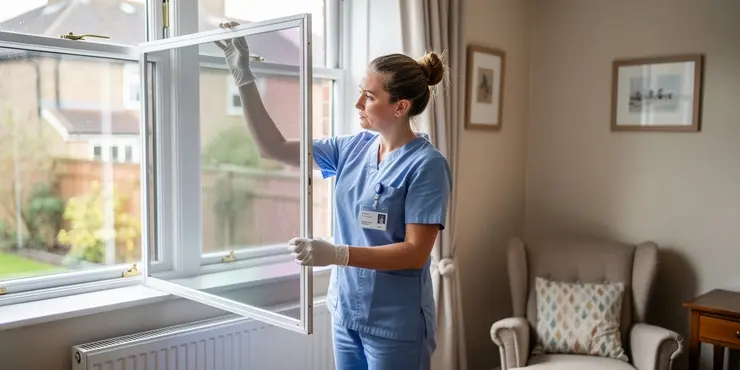
Are Mosquito window screens effective?
Relevance: 78%
-
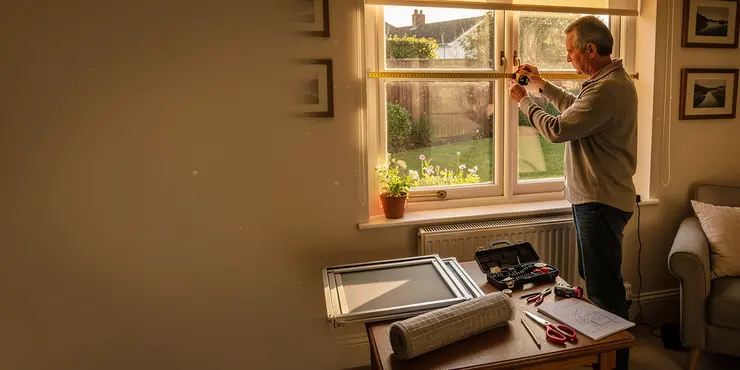
Can I install mosquito screens myself?
Relevance: 75%
-

Are mosquito window screens effective in the UK?
Relevance: 75%
-

Do mosquito screens provide insulation benefits?
Relevance: 74%
-
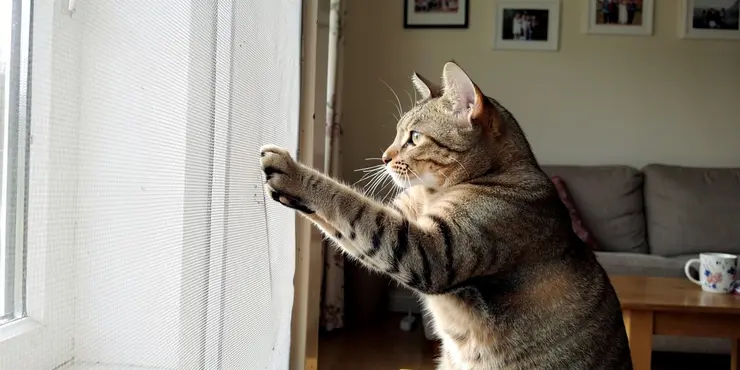
Can pets damage mosquito screens?
Relevance: 74%
-
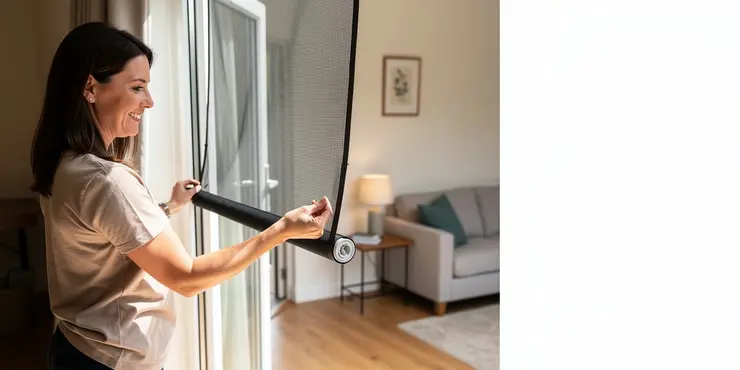
Are there retractable mosquito screens available?
Relevance: 72%
-

Will mosquito screens block out light or air?
Relevance: 72%
-
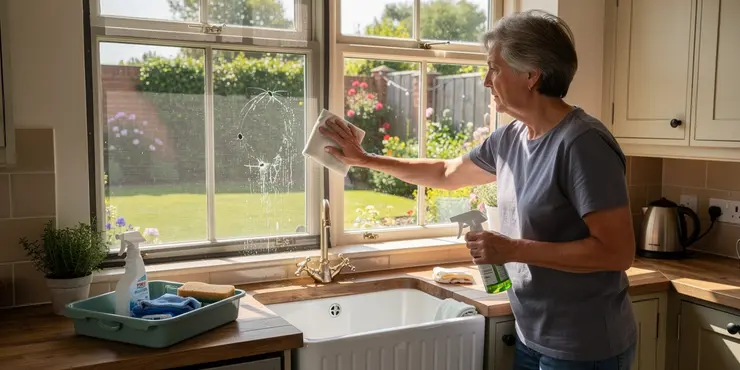
How do I maintain my mosquito screens?
Relevance: 71%
-
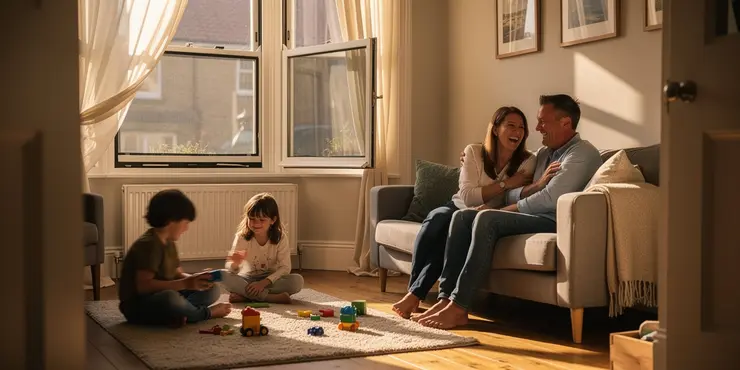
Do mosquito screens add value to my home?
Relevance: 69%
-

Can mosquito screens be used on doors as well?
Relevance: 69%
-

Do mosquito screens work for all types of windows?
Relevance: 65%
-
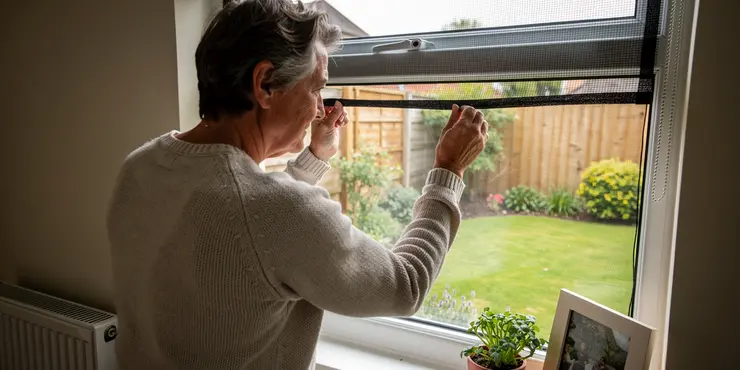
Are mosquito screens effective against midges?
Relevance: 63%
-

Can mosquito screens help reduce hay fever symptoms?
Relevance: 59%
-

Are mosquito bites in the UK harmful?
Relevance: 47%
-

Can mosquitoes in the UK enter houses?
Relevance: 47%
-

Are there Mosquitos in the United Kingdom?
Relevance: 47%
-

Do UK mosquitoes carry diseases?
Relevance: 46%
-

Do all mosquitoes bite humans?
Relevance: 45%
-

When are mosquitoes most active in the UK?
Relevance: 45%
-
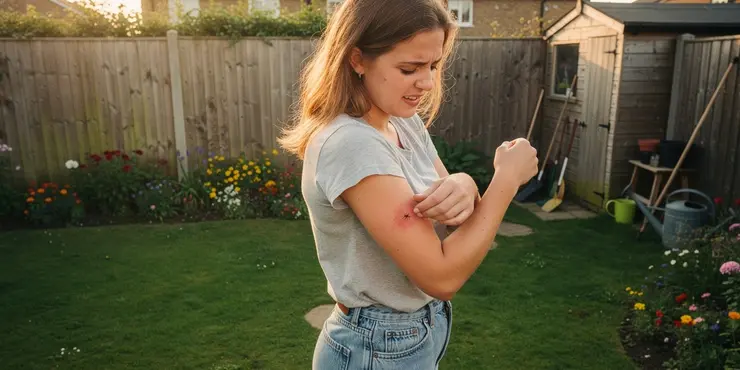
Why are mosquito bites itchy?
Relevance: 44%
-
Do all mosquitoes in the UK carry diseases?
Relevance: 43%
-

Are there mosquitoes in the United Kingdom?
Relevance: 43%
-
Can mosquitoes transmit any bacterial diseases in the UK?
Relevance: 42%
-
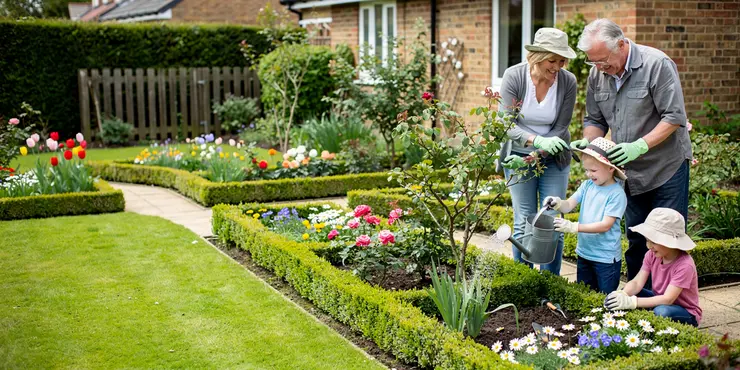
How can I prevent mosquitoes from breeding near my home?
Relevance: 42%
-
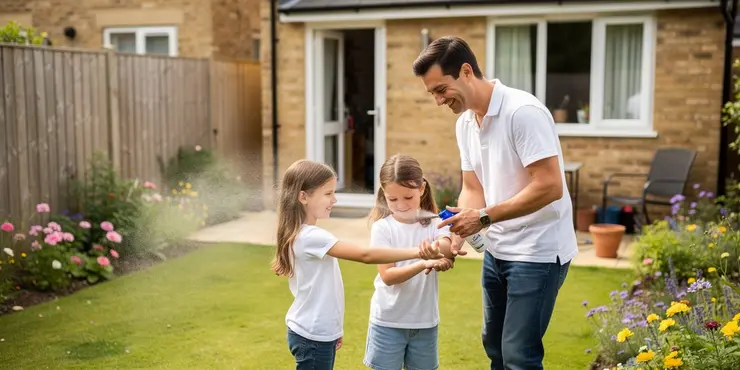
How effective are mosquito repellents in the UK?
Relevance: 41%
-
What materials are used for Turkey Teeth?
Relevance: 40%
-

Are climate changes affecting mosquito populations in the UK?
Relevance: 40%
-

Is malaria spread by mosquitoes in the UK?
Relevance: 40%
-

Are there any native mosquito predators in the UK?
Relevance: 40%
-

What types of mosquitoes are found in the UK?
Relevance: 39%
-

How can I protect myself from mosquito bites in the UK?
Relevance: 39%
-

Are there any government initiatives to control mosquitoes in the UK?
Relevance: 38%
-

Are UK mosquitoes capable of transmitting Zika virus?
Relevance: 37%
-

How can I treat mosquito bites?
Relevance: 37%
-
Is Zika virus screened for in blood transfusions?
Relevance: 37%
-

What diseases are spread by mosquitos in the UK in 2025?
Relevance: 37%
-

Is there a risk of yellow fever being spread by mosquitoes in the UK?
Relevance: 36%
-

How is blood screened to prevent disease transmission?
Relevance: 31%
What Materials are Mosquito Screens Made From?
Introduction
Mosquito screens are a practical solution for keeping insects out while allowing fresh air to circulate through your home. Their effectiveness largely depends on the materials used in their construction. This article explores the variety of materials commonly used for mosquito screens, with a focus on those available and popular in the UK.Fiberglass
Fiberglass is one of the most popular materials for mosquito screens, primarily due to its durability and cost-effectiveness. It offers good airflow and visibility, making it a desirable choice for homeowners. Fiberglass screens are resistant to rust and stains, which makes them ideal for the UK's often damp weather.Aluminium
Aluminium mosquito screens are known for their strength and resistance to weathering. They are more robust compared to fiberglass, which can be a significant advantage in windy areas. Aluminium screens usually have a longer lifespan but might cost more. They also provide excellent visibility, though they may dent if not handled with care.Polyester
Polyester is another material used in mosquito screens, valued for its flexibility and ease of installation. Due to its soft texture, it is an excellent choice for areas frequented by children and pets, as it reduces the risk of injury. However, polyester screens may not be as durable as those made from aluminum or fiberglass.Stainless Steel
For those looking for maximum durability, stainless steel mosquito screens are an ideal option. They are incredibly hard-wearing and resistant to both rust and corrosion, which is particularly beneficial in the UK where moisture is a concern. Despite their durability, stainless steel screens can be more expensive and heavier than other options.Natural Fibers
Eco-conscious consumers may opt for screens made from natural fibers such as bamboo or other plant-based materials. While these options offer a more sustainable approach, they may not provide the same level of durability or insect protection as synthetic materials and can deteriorate faster in the UK climate.Conclusion
Mosquito screens come in a variety of materials, each with its own set of advantages and disadvantages. When choosing a screen, it is essential to consider factors such as durability, cost, and the specific environmental conditions of your area in the UK. Whether you prioritize strength, cost-effectiveness, or eco-friendliness, there is a material that will suit your needs.What Are Mosquito Screens Made From?
Introduction
Mosquito screens stop bugs from coming in while letting fresh air flow through your house. How well they work depends on what they are made of. This guide talks about different materials used for mosquito screens. We will focus on those you can find in the UK.Fiberglass
Fiberglass is a popular choice for mosquito screens. It is strong and not too expensive. It lets air and light come through, which is good for your home. Fiberglass does not rust or stain, which is great for the UK, especially when it rains a lot.Aluminium
Aluminium screens are strong and last a long time. They are tougher than fiberglass, which is good if it's windy. Aluminium costs more but lasts longer. They let you see outside well but can get dents if you bump them.Polyester
Polyester screens are easy to use and put up. They are soft, so they are safe if you have kids or pets. But, they might not last as long as aluminium or fiberglass screens.Stainless Steel
If you need a very strong screen, stainless steel is a good pick. It doesn’t rust and works well in wet weather like in the UK. But, these screens are more costly and heavier than other types.Natural Fibers
Some people like eco-friendly screens made from natural things like bamboo. These are better for the environment but might not last as long or keep bugs out as well. They can wear out faster in the UK's weather.Conclusion
Mosquito screens come in different materials, each with good and not-so-good points. When picking a screen, think about how long it lasts, the price, and the weather where you live in the UK. Whether you care about strength, saving money, or being green, there is a screen that’s right for you. To help understand better, try reading this text out loud or using pictures of the screens.Frequently Asked Questions
What materials are mosquito screens commonly made from?
Mosquito screens are commonly made from materials such as fibreglass, aluminium, stainless steel, and polyester.
Are fibreglass screens a good choice for mosquito protection?
Yes, fibreglass is a popular choice for mosquito screens because it is durable, easy to install, and resistant to corrosion.
How does aluminium compare to other materials for mosquito screens?
Aluminium is lightweight, strong, and resistant to corrosion. However, it may dent or bend more easily than fibreglass.
Is stainless steel used for mosquito screens?
Yes, stainless steel is a durable and strong material used for high-security mosquito screens. It offers excellent protection but can be more expensive.
What are the advantages of polyester mosquito screens?
Polyester screens are flexible and resistant to stretching and tearing. They are also generally more affordable than metal options.
Can plastic materials be used for mosquito screens?
Yes, some mosquito screens are made from plastic or vinyl-coated polyester. These are usually less expensive and provide good flexibility.
Are there eco-friendly options for mosquito screens?
Eco-friendly options can include screens made from recycled materials or natural fibres, although they may not be as durable as synthetic options.
Do different materials affect the visibility through mosquito screens?
Yes, materials like fibreglass and polyester typically offer good visibility, whereas darker-coloured metal screens might reduce glare and improve outward visibility.
Are stainless steel screens more secure than other options?
Yes, stainless steel screens are often used for security purposes as they are tougher and more resistant to cutting and intrusion.
Is there a maintenance difference between fibreglass and aluminium screens?
Fibreglass screens require minimal maintenance and do not rust, while aluminium screens may require occasional cleaning to prevent dirt build-up.
What is the longevity of fibreglass mosquito screens?
Fibreglass screens typically last several years with proper care, but they can be more susceptible to tearing compared to metal screens.
How does the cost of these materials compare?
Fibreglass and polyester screens are generally more affordable, while aluminium and stainless steel screens are higher in cost due to their durability and strength.
Can you customise mosquito screens with different materials?
Yes, many suppliers offer custom-sized screens and allow you to choose from a variety of materials, depending on your needs and budget.
What mosquito screen material is best for high-moisture areas?
Stainless steel is ideal for high-moisture areas as it resists rust. Fibreglass is also a good option due to its non-corrosive properties.
Are there specific materials recommended for allergens or pollen protection?
Screens made from tightly woven fibreglass or specially designed screens with air filtration features can help reduce pollen and allergens.
What are mosquito screens usually made of?
Mosquito screens are often made from these materials:
- Fiberglass: This is a strong and light material. It is used a lot.
- Aluminum: This is metal. It is shiny and strong.
- Polyester: This is a type of cloth. It can be soft and strong.
To help understand, you can:
- Look at pictures or videos of mosquito screens.
- Ask someone to explain or show you a real screen.
Most mosquito screens are made from things like fibreglass, aluminium, stainless steel, and polyester.
Are fibreglass screens good for keeping mosquitoes away?
Fibreglass screens can help keep mosquitoes out of your home. They are strong and can fit on windows and doors. Here is why you might like them:
- Stops mosquitoes: They block mosquitoes from getting inside.
- Lets air in: Fresh air can still come through the screen.
- Looks clear: You can see outside easily through the screen.
If you want to understand more, ask someone to explain it to you. Looking at pictures can help too.
Yes, many people like to use fibreglass for mosquito screens. It is strong, easy to put up, and does not get rusty.
Is aluminium better than other materials for mosquito screens?
Let's talk about mosquito screens. These are the nets that stop mosquitoes from coming into your home. There are different materials used to make these screens. One of these materials is aluminium.
Aluminium is a type of metal. It is strong and lasts a long time, even in bad weather. But, it can be more expensive than other materials.
There are other materials like fiberglass or plastic. Fiberglass is cheaper than aluminium and is also strong. Plastic can bend easily and is not as strong.
When choosing a screen, think about what is important for you. Do you want it to be very strong? Do you want it to be cheap? You can use a list to compare the good and bad things about each material:
- Aluminium: Strong and long-lasting, but more expensive.
- Fiberglass: Strong and cheaper than aluminium.
- Plastic: Bendable and not as strong.
You can also ask someone at a store to help you pick the best material. You might use pictures or videos to understand better.
Aluminium is a type of metal. It is light, strong, and does not rust easily. But, it can get dents or bend more easily than fibreglass.
Do people use stainless steel for mosquito screens?
Yes, stainless steel is strong and lasts a long time. It is used for strong mosquito screens to keep you safe. It is very good, but it can cost more money.
Why are polyester mosquito screens good?
Polyester mosquito screens keep mosquitoes and bugs out of your home. They have many good things:
- They are strong and do not tear easily.
- They are lightweight, so they are easy to use.
- They last a long time, so you do not have to change them often.
- They are easy to clean.
- They let air and light into your home.
You can also ask someone to help read with you or use pictures to understand better.
Polyester screens are bendy and don't break or rip easily. They usually cost less money than metal ones.
Can we use plastic for mosquito screens?
Yes, some mosquito screens are made from plastic. Some are also made from polyester with a plastic coating. These screens are usually cheaper and are flexible.
Can I get earth-friendly mosquito screens?
Eco-friendly screens can be made from things that have been recycled or from natural stuff. These might not last as long as other screens made from man-made materials.
Can you see through mosquito screens made of different materials?
Yes, materials like fibreglass and polyester usually let you see well. Darker metal screens can help stop light from shining in your eyes and make it easier for you to see outside.
Are stainless steel screens safer than other kinds?
Here's a simple way to understand:
Stainless Steel Screens: These are very tough and strong. They help keep your home safe.
Other Screens: These might not be as strong as stainless steel. They can still keep bugs out, but might not be as good at keeping your home safe.
Tools to Help You:
- Ask someone you trust if you have questions.
- Use pictures or videos to see how screens work.
- Get help from a friendly store worker to pick the right screen for your home.
Yes, stainless steel screens are strong and hard to cut. People use them to keep homes safe.
Are fibreglass screens or aluminium screens harder to take care of?
Here is a simple question: Which is easier to look after, fibreglass screens or aluminium screens?
Some tools that might help you:
- Ask a friend: Talk to someone who knows about screens.
- Find pictures: Look at pictures online to see what they look like.
- Videos: Watch videos about screen care on the internet.
Fiberglass screens are easy to take care of and do not rust. Aluminum screens need to be cleaned sometimes to stop dirt from staying on them.
How long do fibreglass mosquito screens last?
Fibreglass mosquito screens last a long time. They can last for many years if you take care of them.
Ways to make them last longer:
- Keep them clean. Use water and soap to wash them gently.
- Check for holes or tears. Fix them quickly so bugs can't get in.
- Be careful when opening and closing windows.
If you need help, you can ask someone to show you how to care for your screens.
Fibreglass screens can last a long time if you take care of them. But they can tear more easily than metal screens.
How much do these materials cost?
Let's look at how much each thing costs. We want to see which one is cheaper or more expensive.
If you have trouble reading, you can:
- Ask someone to help you read.
- Use a tool that reads text out loud.
- Look at pictures or charts about prices.
Fibreglass and polyester screens are usually cheaper. Aluminium and stainless steel screens cost more because they are strong and last longer.
Can you make mosquito screens with different stuff?
Yes, you can make mosquito screens with different kinds of stuff, like cloth or metal. Some screens are made to keep out bugs, and some are made to let in more air.
Ask a grown-up if you need help choosing the right screen. They can help you. You can also use pictures to help decide what you like.
Yes, lots of companies can make screens the size you want. You can also pick different kinds of materials. It depends on what you need and how much money you want to spend.
What is the best mosquito screen for wet places?
Stainless steel is great for places that get wet. It doesn’t get rusty. Fiberglass is also good because it does not rust or corrode.
What materials help protect against allergies or pollen?
Some materials can help keep away things that cause allergies, like pollen or dust. Here are a few that might help:
- Special covers for beds: Use covers on pillows and mattresses. They stop dust and pollen from getting in.
- Air filters: Use an air filter in your home. It cleans the air and removes pollen and dust.
- Hypoallergenic clothing and bedding: These are made to be less likely to cause allergies.
You can ask a doctor or nurse if you need more help. They can tell you which materials are best for you.
Screens that are made from tight fibreglass or special filters can help keep out pollen and things that make allergies worse.
Useful Links
This website offers general information and is not a substitute for professional advice.
Always seek guidance from qualified professionals.
If you have any medical concerns or need urgent help, contact a healthcare professional or emergency services immediately.
Some of this content was generated with AI assistance. We’ve done our best to keep it accurate, helpful, and human-friendly.
- Ergsy carfully checks the information in the videos we provide here.
- Videos shown by Youtube after a video has completed, have NOT been reviewed by ERGSY.
- To view, click the arrow in centre of video.
- Most of the videos you find here will have subtitles and/or closed captions available.
- You may need to turn these on, and choose your preferred language.
- Go to the video you'd like to watch.
- If closed captions (CC) are available, settings will be visible on the bottom right of the video player.
- To turn on Captions, click settings .
- To turn off Captions, click settings again.
More Items From Ergsy search
-

What materials are mosquito screens made from?
Relevance: 100%
-

Are there eco-friendly mosquito screen options?
Relevance: 79%
-

Are Mosquito window screens effective?
Relevance: 78%
-

Can I install mosquito screens myself?
Relevance: 75%
-

Are mosquito window screens effective in the UK?
Relevance: 75%
-

Do mosquito screens provide insulation benefits?
Relevance: 74%
-

Can pets damage mosquito screens?
Relevance: 74%
-

Are there retractable mosquito screens available?
Relevance: 72%
-

Will mosquito screens block out light or air?
Relevance: 72%
-

How do I maintain my mosquito screens?
Relevance: 71%
-

Do mosquito screens add value to my home?
Relevance: 69%
-

Can mosquito screens be used on doors as well?
Relevance: 69%
-

Do mosquito screens work for all types of windows?
Relevance: 65%
-

Are mosquito screens effective against midges?
Relevance: 63%
-

Can mosquito screens help reduce hay fever symptoms?
Relevance: 59%
-

Are mosquito bites in the UK harmful?
Relevance: 47%
-

Can mosquitoes in the UK enter houses?
Relevance: 47%
-

Are there Mosquitos in the United Kingdom?
Relevance: 47%
-

Do UK mosquitoes carry diseases?
Relevance: 46%
-

Do all mosquitoes bite humans?
Relevance: 45%
-

When are mosquitoes most active in the UK?
Relevance: 45%
-

Why are mosquito bites itchy?
Relevance: 44%
-
Do all mosquitoes in the UK carry diseases?
Relevance: 43%
-

Are there mosquitoes in the United Kingdom?
Relevance: 43%
-
Can mosquitoes transmit any bacterial diseases in the UK?
Relevance: 42%
-

How can I prevent mosquitoes from breeding near my home?
Relevance: 42%
-

How effective are mosquito repellents in the UK?
Relevance: 41%
-
What materials are used for Turkey Teeth?
Relevance: 40%
-

Are climate changes affecting mosquito populations in the UK?
Relevance: 40%
-

Is malaria spread by mosquitoes in the UK?
Relevance: 40%
-

Are there any native mosquito predators in the UK?
Relevance: 40%
-

What types of mosquitoes are found in the UK?
Relevance: 39%
-

How can I protect myself from mosquito bites in the UK?
Relevance: 39%
-

Are there any government initiatives to control mosquitoes in the UK?
Relevance: 38%
-

Are UK mosquitoes capable of transmitting Zika virus?
Relevance: 37%
-

How can I treat mosquito bites?
Relevance: 37%
-
Is Zika virus screened for in blood transfusions?
Relevance: 37%
-

What diseases are spread by mosquitos in the UK in 2025?
Relevance: 37%
-

Is there a risk of yellow fever being spread by mosquitoes in the UK?
Relevance: 36%
-

How is blood screened to prevent disease transmission?
Relevance: 31%


